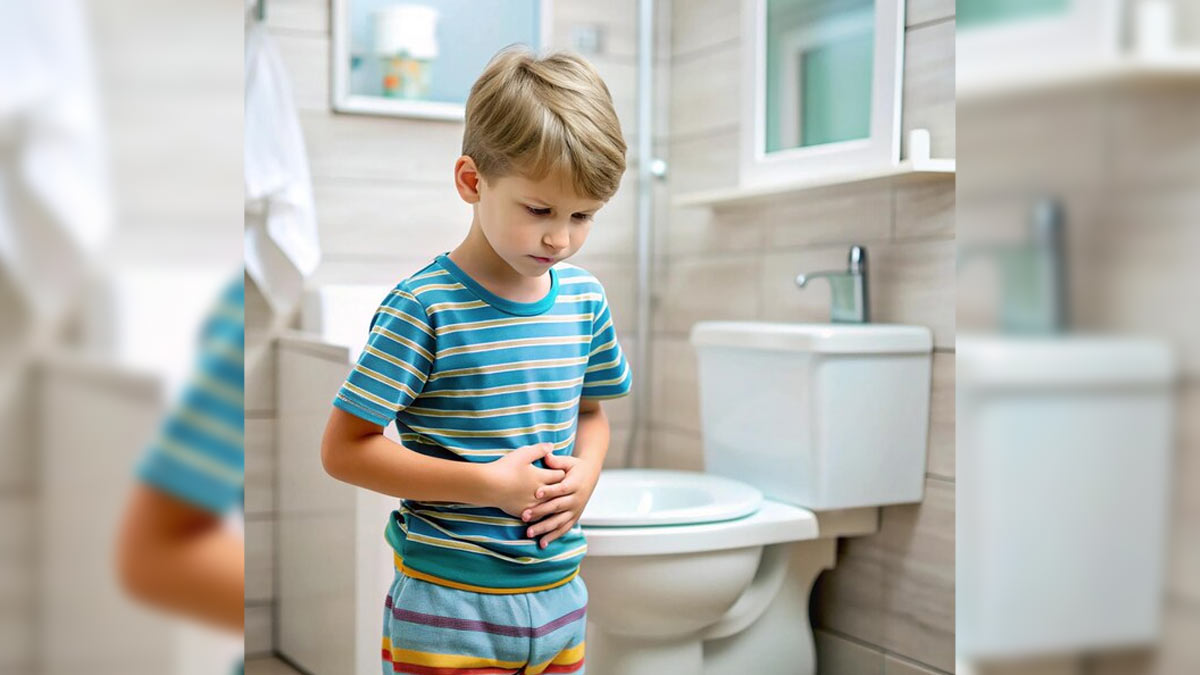Have you noticed your child experiencing loose motions that just won’t seem to go away? Are you beginning to worry that there might be more to it than just a stomach bug? While diarrhoea in children is usually linked to common causes like infections or food intolerances, persistent cases can sometimes point to more serious underlying conditions, including liver problems. We spoke to our expert Dr Ravi Kyadigerri, MD, Fellowship in Neonatology, Apollo Cradle and Children’s Hospital, Bangalore, who explained the connection between chronic loose motions and liver dysfunction and the importance of getting the right diagnosis and care early on.
What Is Diarrhoea?

“Diarrhoea is a condition characterised by frequent watery or loose bowels. Persistent diarrhoea in children may strike fear among parents as it causes abdominal cramping, bloating, and dehydration. Diarrhoea in children can arise from several factors, including gastrointestinal infections, food allergies, celiac disease, and inflammatory bowel disease,” said Dr Kyadigerri.
According to the Pediatric Gastroenterology, Hepatology & Nutrition, diarrhoea involves the excessive loss of fluids and electrolytes through the stool. When it continues for more than 14 days, it is classified as chronic or persistent. Globally, diarrhoea is the second leading cause of death among children under the age of five.
Jaundice, abdominal pain, weight fluctuations, fatigue, and pale stools are few symptoms of diarrhoea. Certain liver diseases, such as biliary atresia, cholestasis, hepatitis, fatty liver disease, and cystic fibrosis can also lead to diarrhoea depending on the severity of the condition.
Also Read: Peppermint For Digestive Relief: Here’s How It Can Help Manage Diarrhoea
How Liver Dysfunction Leads to Diarrhoea

The liver plays a central role in digestion and produces bile, which helps break down fats and can absorb fat-soluble vitamins A, D, E, and K. When the liver is compromised, its role in secreting bile is diminished. “Interruption in fat metabolism will bring undigested fats into the intestines, causing steatorrhea and loose stools. Many times, inflammation or infection of the intestines is caused by many liver diseases, which contribute to diarrhoea. In children, this can lead to diarrhoea that lasts for several months or even years,” explained Dr Kyadigerri.
Diagnostic and Treatment

“Doctors recommend blood tests and imaging tests like MRI to detect the precise reason for a health condition. Depending on the individual’s health condition and the severity of the condition, liver biopsy is suggested in extreme cases for accurate results. Treatment depends on the type of liver disease,” added Dr Kyadigerri.
For example, biliary atresia may require surgery to restore bile flow, whereas viral hepatitis can be addressed by antiviral medication. In the case of fatty liver disease, changes in lifestyle, such as maintaining a balanced diet along with hydration, could help manage and prevent further health complications.
Also Read: Diarrhoea Can Spread From Person To Person: Here’s Why And How To Prevent It
Usually, diarrhoea will gradually disappear after a few days. During diarrhoea, the body loses a lot of vitamins and minerals, especially potassium. To replenish these lost nutrients, parents should encourage their children to consume nutritious foods, such as boiled eggs, oatmeal, and fruits high in potassium, like bananas. Additionally, drinking coconut water can help keep children hydrated.
Bottomline
Dr Kyadigerri concluded, “Loose motions are common in children, but continuous diarrhoea may indicate a more serious issue, like liver dysfunction. Hence, consult your healthcare provider as soon as such symptoms occur. Early detection and treatment play a vital role in preventing further health complications and children can enjoy their healthy life without affecting daily activities.”
[Disclaimer: This article contains information provided by an expert and is for informational purposes only. Hence, we advise you to consult your own professional if you are dealing with any health issues to avoid complications.]

